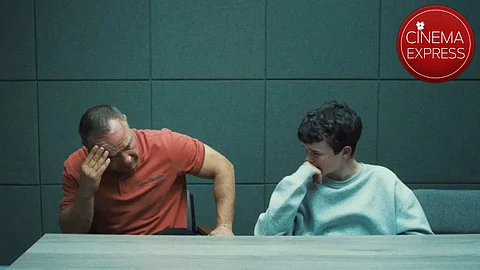

Netflix's Adolescence has triggered vital conversations about the dark world of the online “manosphere” and how it preys on vulnerable, impressionable boys. The limited series spawned several think pieces dissecting the show's visceral portrayal of the grotesque extremes of toxic masculinity. A few suggest that men must be liberated from “gendered expectations.” However, among the many valid discussions, you could also see a tiny section of the audience deriving a simplistic and warped view of the problems broached by the series, who posit that masculinity in itself is the problem. Adolescence does not aim to vilify masculinity but it shows you how in the absence of education and public discourse around masculine values, it becomes easy for toxic and even dangerous interpretations of masculinity to take its place. Some say that toxic masculinity arises from incorporating masculine values too much. However, I would like to say that levels of a virtue, either masculine or feminine, do not decide their toxicity. On the contrary, toxic behaviours in men often stem from a lack of healthy masculine grounding—not from an excess of it.
In contemporary Indian households, male puberty remains a taboo topic. Parents rarely acknowledge the physical and emotional transitions—be it facial hair, deepening voices, morning erections, or nocturnal emissions. Meanwhile, tribal communities—often dismissed as “primitive”—conduct coming-of-age rituals that initiate boys into men and its responsibilities. Our society deserves equal blame for not properly initiating young boys into adulthood. A poignant moment in Adolescence captures this theme subtly. Officer Luke Bascombe (Ashley Walters), while investigating Jamie’s case, realises how emotionally distant he has been from his son, Adam. He then makes a conscious effort to listen—to be present. That scene, though understated, is powerful. Because much of the toxicity we see in society isn’t born from masculinity—but from its denial. When society treats masculinity like a dirty word, when fathers vacate their roles, and when no one helps boys navigate their changes—we leave a void. Into that void step figures like Andrew Tate, who peddle loud, simplistic, and toxic interpretations of masculinity. According to his parents, Jamie is a harmless kid who wets his pants and fears even needles. However, he commits a murder without even realising the graveness of what he did and helplessly murmurs that he didn't do anything wrong. When a father steps away, a Tate steps in.
Sometimes, misunderstood expressions of masculinity are labelled harmful and offensive. Take manspreading, for example. Male physiology renders it uncomfortable to sit with legs closed for a long time. There is no doubt that one should be respectful of space in public transport. But when a man sits with his legs slightly apart in an empty bus, without disturbing a co-passenger, for his own comfort, is it truly a crime? The solution lies not in abandoning masculinity but in refining its definition. Teach boys to work hard and be of use—to themselves and others. That alone can stop them from resenting women who choose capable, ambitious partners. If a “gendered expectation” leads to growth, so be it.
Young Indian boys are particularly vulnerable to Tate-like figures—not merely because of his confidence or exaggerated personality. There’s a deeper issue. Various theological traditions in India— certain schools of Hinduism, Buddhism, Jainism, and even segments of Christianity—have long promoted monastic ideals that see the union of man and woman as impure or distracting. This has filtered into everyday life: the shame surrounding male-female friendships, seating a boy next to a girl in school as a form of punishment, and the childish glorification of “only boys” cliques that ignore girls, are all symptoms of it. Parents—especially fathers—must normalise friendships across genders. Don’t mock your son for befriending a girl. Don’t punish curiosity. When a boy is taught to view girls as mystical or forbidden, he’s far more likely to seek misguided validation—and that often ends in disappointment, resentment, or worse.
Boys go through real, complex changes—physically, emotionally, and psychologically. Don’t villainise masculinity. Recognise it. Regulate it. Cultivate it. Denying its existence only lets it grow unchecked. The more fathers talk to their sons about masculinity, the fewer Andrew Tates we’ll need to worry about—and the fewer Jamies we’ll have to mourn. So hold that door. Pull that chair. Pay that bill. Gift that dress. Say those words. Show that love. Be soft when needed. Be firm when necessary. Be a man.